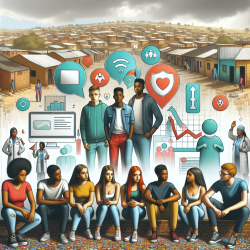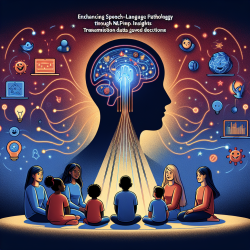Introduction
The Botsha Bophelo Adolescent Health Study (BBAHS) presents a comprehensive analysis of the HIV risk factors among adolescents in Soweto, South Africa. As practitioners dedicated to improving the lives of children and adolescents, it is imperative to harness data-driven insights from such studies to enhance our therapeutic approaches and outcomes. This blog delves into the key findings of the BBAHS and explores how practitioners can leverage this data to foster better health outcomes for adolescents.
Understanding the Context
According to the study, adolescents in Soweto face multifaceted challenges that contribute to their heightened vulnerability to HIV. These challenges include socio-economic hardships such as high food insecurity, substandard housing, and the loss of parents. The study found that 52% of participants reported high food insecurity, and 37% had lost one or both parents. These factors underscore the need for comprehensive, community-based interventions that address both the social and health-related needs of adolescents.
Key Findings and Implications
The BBAHS highlights several critical determinants of HIV risk among adolescents:
- Sexual Behavior: Over half of the participants reported having had sex, with 11% initiating sexual activity before the age of 15. This calls for targeted sexual health education that addresses early sexual debut and promotes safe practices.
- HIV Knowledge: While participants demonstrated moderate HIV-related knowledge, misconceptions about the origins of HIV persist. Only 20% could correctly identify chimpanzees as the zoonotic reservoirs of HIV-1. This indicates a need for enhanced educational interventions that provide accurate information about HIV.
- Healthcare Utilization: Nearly half of the participants had never been tested for HIV, with many expressing fears about learning their status. This highlights the importance of creating adolescent-friendly health services that reduce stigma and encourage testing.
- Mental Health and Substance Use: The study found high levels of alcohol use and depression among participants, with 35% meeting the criteria for depression. Integrated mental health and substance use interventions are crucial to addressing these co-factors.
Implementing Data-Driven Interventions
Practitioners can play a pivotal role in transforming these findings into actionable interventions. Here are some strategies to consider:
- Enhance Sexual Health Education: Develop comprehensive, age-appropriate sexual health curricula that address the specific needs and misconceptions of adolescents. Incorporate interactive and culturally relevant teaching methods to engage students effectively.
- Promote Adolescent-Friendly Health Services: Collaborate with local health centers to create safe, welcoming environments for adolescents to access HIV testing and counseling. Training healthcare providers to be sensitive to the unique needs of adolescents can improve service uptake.
- Integrate Mental Health Support: Implement school-based mental health programs that address the psychological well-being of adolescents. Providing access to counseling and support services can help mitigate the impact of trauma and depression.
- Leverage Technology: Utilize digital platforms to disseminate accurate HIV information and connect adolescents with health resources. Social media and mobile applications can be powerful tools for reaching young people where they are.
Encouraging Further Research
The BBAHS underscores the complexity of factors influencing adolescent health in Soweto. Continued research is essential to deepen our understanding and refine interventions. Practitioners are encouraged to engage in collaborative research efforts that explore innovative solutions and address gaps in current knowledge.
Conclusion
By integrating the insights from the BBAHS into practice, we can make significant strides in improving the health outcomes of adolescents in Soweto and beyond. As practitioners, our commitment to data-driven decision-making and evidence-based interventions will empower the next generation to lead healthier, more fulfilling lives.
To read the original research paper, please follow this link: The Botsha Bophelo Adolescent Health Study: A profile of adolescents in Soweto, South Africa.










